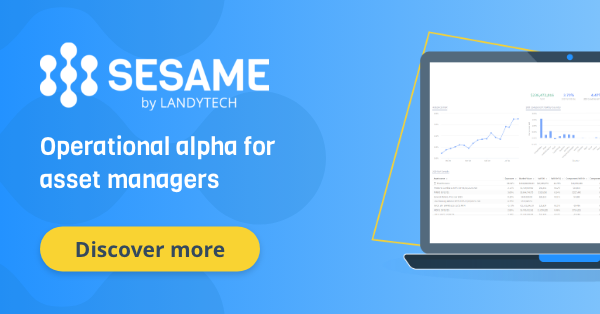Written by Landytech
26 Jan 2023
Competitive market pressures are stronger than ever, and volatility looks here to stay for a while yet, putting the onus on smaller and emerging asset managers to find new ways to adapt. As firms reassess operating models with urgency and look to differentiate their service against a backdrop of sustained pressure on fees and shifting investor product demand, what are the top 10 trends shaping the asset management industry in 2023?
1. Inflation persists
Inflation being at multi-decade highs is having a significant impact on the operating costs of asset managers. From technology and data costs to salaries. It is pushing the industry to re-evaluate processes, operating structures and their technology cost of ownership in a bid to keep costs down. Firms are also looking to outsourced service providers, particular in areas such as risk management, for efficiencies.
Opinions differ on how long inflation is here to stay for, but while it persists, asset managers need to find new ways to protect against the worst of it. Previously out of favour strategies, asset classes and geographies have already started to make a resurgence.
2. ESG reporting and disclosures
Interest in ESG funds has increased exponentially in recent years and there are no signs of that slowing down in 2023. But it is not just inflows that have been increasing. As policymakers turn their attention to ESG concerns, there has been increased pressure for asset managers to provide more data and consistent reporting around ESG investments. Alongside the ongoing rollout of SFDR Level 2, EU taxonomy and MiFID II sustainability preferences have also been added to the growing stack of ESG regulations asset managers must adapt to.
3. The regulatory onslaught
Regulatory reporting burdens continue to mount in 2023. As UCITS funds transition to PRIIPS KIDs for retail investors in 2023, and the rollout of ESG regulation continues, it all follows hotly on the heels of European Securities and Markets Authority guidelines on liquidity stress testing, introduced in September 2020. Under the guidelines, fund managers must stress test the assets and liabilities of their funds, including stressing potential redemption requests to combat liquidity risk. These obligations are on top of existing extensive reporting requirements for UCITS, AIFMD, MiFID, DTCC reconciliation under EMIR, Solvency II, ANNEX IV, OPERA et al., meaning asset managers are being forced to spend more time on regulatory compliance than ever before.
4. Rethinking data strategies
As firms look to find operational efficiencies, asset managers are reflecting on their data strategies in order to break down internal data silos and improve the quality of data that is used for portfolio analysis, client and regulatory reporting.
Data is also the fuel behind comprehensive performance and risk reporting, and with the underperformance some managers face in current market conditions, providing it accurately and quickly is more important than ever. Being able to aggregate data rapidly across systems can help managers quickly identify the performance drivers and detractors within a portfolio, along with gaining a deep understanding of exposures and risks.
5. Improving the reporting experience
As competition for capital continues to rise, an outstanding reporting experience can go a long way to cementing brand credentials, which creates loyal clients and attracts new mandates. Investors increasingly favour managers that can respond rapidly to ad hoc requests, and provide a near-real-time view of top-level performance and risk metrics, but also the ability to look granularly at individual security level. For asset managers looking to differentiate their service offering, providing only static, periodic reports is simply no longer enough.
6. A heightened focus on risk
In volatile markets, investor demands when it comes to risk management become deep and broad. Robust processes and high-quality risk reporting are paramount. As is the ability to deliver a wide range of analytics, including portfolio sensitivities, scenarios, stress testing, risk contributions and liquidity, alongside performance contribution and attribution analysis. Strong risk governance frameworks providing daily automated monitoring of regulatory and fund risk profile limits, with alerts to notify managers of any breaches, are essential for maintaining fund integrity.
7. Providing transparent reporting
Transparent reporting is a vital contributor to investor retention, especially when performance has been struggling. Alongside their investment teams, allocators have non-investment teams who value high-quality client service and will have a significant say in deciding whether to redeem from a manager. Investors will need reassurance that any underperformance is temporary, especially with strategies that are prone to volatility and require a full cycle to deliver. Feeling confident they are not being misled or that anything is being hidden is crucial. Transparent and easy to understand reporting go a long way to providing that confidence.
8. The squeeze on fees continues
As investors continue to show partiality to lower-cost passive investment funds, the pressure on fees continues for active managers. In these turbulent times, fund managers that are unable to deliver required performance for investors will come under even greater pressure to lower their fees. In these cases, to protect margins asset managers need to find operational efficiencies with technological platforms and differentiate their service with outstanding reporting.
9. Factors are back
Two years ago, it wasn’t uncommon to hear people say factors didn’t matter anymore. But in 2023 no-one is saying that now. Persistent inflation and geopolitical tension have altered outlooks and fuelled deglobalisation. Investors are now turning back to factors to better understand portfolio characteristics and market opportunities. It has led to a resurgence in popularity for equity risk models, such as MSCI BarraOne, to help asset managers reaffirm that stocks they buy are moving as expected.
10. Technology adoption
In a period of volatile markets and intense competition asset managers need to be nimble. Cloud-based investment management software gives smaller and emerging asset managers the ability to automate burdensome risk management and reporting workflows, whilst also providing a radically improved reporting experience for clients.
Finding efficiencies and reclaiming time for higher value portfolio analysis and business development initiatives has never been more important for asset managers. Discover how Landytech’s platform, Sesame, is helping asset managers do just that.




